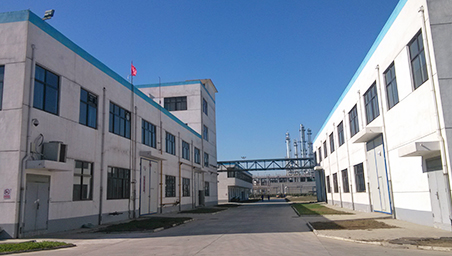
News
Oct . 22, 2024 12:09 Back to list
CE Certification for Micronutrient-Rich Plant Fertilizers and Their Benefits
CE Certification and Micronutrient Plant Fertilizer Ensuring Quality and Safety in Agriculture
In the realm of agriculture, the role of fertilizers is paramount for ensuring healthy crop growth and maximizing yields. Among the various types of fertilizers, micronutrient fertilizers have gained significant attention due to their crucial role in plant development. The increasing demand for high-quality and effective fertilizers has led to the necessity of adhering to certain standards and certifications, with CE certification being a prominent example. In this article, we will explore the significance of CE certification in micronutrient plant fertilizers and its impact on agricultural practices.
Understanding Micronutrient Fertilizers
Micronutrient fertilizers are specialized fertilizers that provide plants with essential micronutrients required in small quantities for their growth and development. These nutrients, including zinc, copper, iron, manganese, molybdenum, and boron, play critical roles in various physiological processes such as photosynthesis, nitrogen fixation, and enzyme function. While macronutrients like nitrogen, phosphorus, and potassium are vital for overall plant health, the absence of micronutrients can lead to deficiencies, stunted growth, and reduced yields.
The Importance of CE Certification
CE marking is a certification that indicates conformity with health, safety, and environmental protection standards for products sold within the European Economic Area (EEA). For fertilizers, including micronutrient formulations, CE certification is crucial as it ensures that the products meet specific regulatory requirements and are safe for use in agriculture.
1. Safety and Compliance One of the primary functions of CE certification is to guarantee that fertilizers do not pose any undue risk to human health or the environment. This is particularly important in agriculture where improper use of fertilizers can lead to soil degradation, water contamination, and adverse effects on biodiversity. By complying with CE standards, manufacturers demonstrate their commitment to producing safe and environmentally friendly products.
2. Quality Assurance CE certification also serves as a mark of quality assurance. It signifies that the manufacturer has undergone rigorous testing and evaluation processes to ensure that their fertilizers meet established performance standards. Farmers and agricultural stakeholders can be more confident in the effectiveness of certified products, leading to better agricultural practices and improved crop yields.
3. Market Access In many regions, especially within the EU, CE certification is mandatory for the commercialization of fertilizers. This certification not only facilitates access to the European market but also enhances the credibility of manufacturers on a global scale. As agricultural markets continue to evolve, having CE-certified products can offer a competitive advantage.
ce certification micronutrient plant fertilizer

The Process of CE Certification
Obtaining CE certification for micronutrient fertilizers involves several key steps
- Conformity Assessment Manufacturers must conduct a thorough assessment to determine whether their products meet the necessary standards. This may involve laboratory tests, quality control measures, and compliance with specific regulations.
- Documentation Proper documentation is essential for the certification process. Manufacturers must provide detailed information regarding the composition, labeling, and intended use of their fertilizers.
- Certification Body An independent notified body typically evaluates the products to ensure compliance with CE requirements. This evaluation may include both technical assessments and audits of the manufacturing process.
- Continuous Monitoring CE certification is not a one-time process; manufacturers must engage in continuous monitoring and quality assurance to maintain their certification status. Regular audits and product testing are necessary to ensure ongoing compliance.
Conclusion
CE certification plays a vital role in the agricultural sector, particularly in the context of micronutrient plant fertilizers. By ensuring safety, quality, and compliance with regulatory standards, CE marking helps to promote sustainable agricultural practices and enhance food security. As the global agricultural landscape continues to evolve, the importance of certified fertilizers will only increase, underscoring the need for farmers, manufacturers, and stakeholders to prioritize quality and safety in their practices. Investing in CE-certified micronutrient fertilizers is not just a regulatory requirement; it is a commitment to supporting sustainable agriculture and advancing global food production.
-
Polyaspartic Acid Salts in Agricultural Fertilizers: A Sustainable Solution
NewsJul.21,2025
-
OEM Chelating Agent Preservative Supplier & Manufacturer High-Quality Customized Solutions
NewsJul.08,2025
-
OEM Potassium Chelating Agent Manufacturer - Custom Potassium Oxalate & Citrate Solutions
NewsJul.08,2025
-
OEM Pentasodium DTPA Chelating Agent Supplier & Manufacturer High Purity & Cost-Effective Solutions
NewsJul.08,2025
-
High-Efficiency Chelated Trace Elements Fertilizer Bulk Supplier & Manufacturer Quotes
NewsJul.07,2025
-
High Quality K Formation for a Chelating Agent – Reliable Manufacturer & Supplier
NewsJul.07,2025
